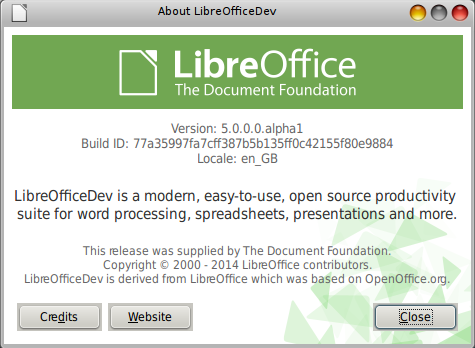LibreOffice 2015 Conference – call for papers
The call for papers for this year’s LibreOffice Conference has today been announced on Twitter by Collabara’s LibreOffice team.

Proposals should be submitted by 15th July 2015 in order to guarantee that they will be considered for inclusion in the conference programme.
The conference programme will be based on the following topics:
- Development, APIs, Extensions, Future Technology;
- Quality Assurance;
- Localisation, Documentation and Native Language Projects;
- Appealing Libreoffice: Ease of Use, Design and Accessibility;
- Enterprise and Public Sector Deployments and Migrations, Certifications and Best Practices;
- Open Document Format, Document Liberation and Interoperability; and
- Building a successful business around LibreOffice.
 This year’s event will be held in Aarhus, Denmark’s second city, from 23rd to 25th September inclusive.
This year’s event will be held in Aarhus, Denmark’s second city, from 23rd to 25th September inclusive.
Venue
The venue will be a completely new venue on the harbour in Aarhus called “Dokk1 – Urban Media Space Aarhus“.
Urban Media Space is described as “a flexible and dynamic sanctuary for everyone in search of knowledge, inspiration and personal development – an open and accessible learning environment supporting democracy and community and is also going to be an example of the library of the future.”
Conference communication channels
The official communication channel during the conference will be the conference mailing list, conference@global.libreoffice.org. All participants will automatically be subscribed to that list, whilst the archives can be browsed at http://listarchives.libreoffice.org/global/conference/.
Primary Danish conference contacts
The primary conference contacts in Denmark have likewise been announced; they are:
- Carsten Agger (Open Space Aarhus);
- Line Dybdahl (Municipality of Aarhus);
- Leif Lodahl (LibreOffice Denmark); and
- René Lagoni Neukirch (LibreOffice Denmark).

 In the Queen’s Speech the Government announced it’s going to introduce an Investigatory Powers Bill (
In the Queen’s Speech the Government announced it’s going to introduce an Investigatory Powers Bill ( The
The 
 LibreOffice Viewer also offers basic editing capabilities, like modifying words in existing paragraphs and changing font styles such as bold and italics.
LibreOffice Viewer also offers basic editing capabilities, like modifying words in existing paragraphs and changing font styles such as bold and italics.



